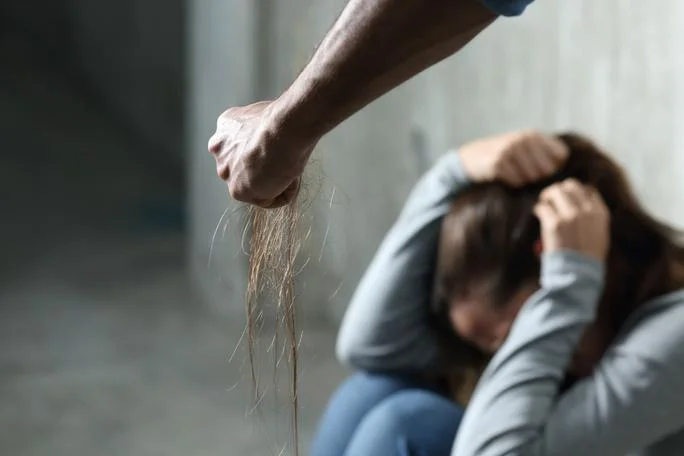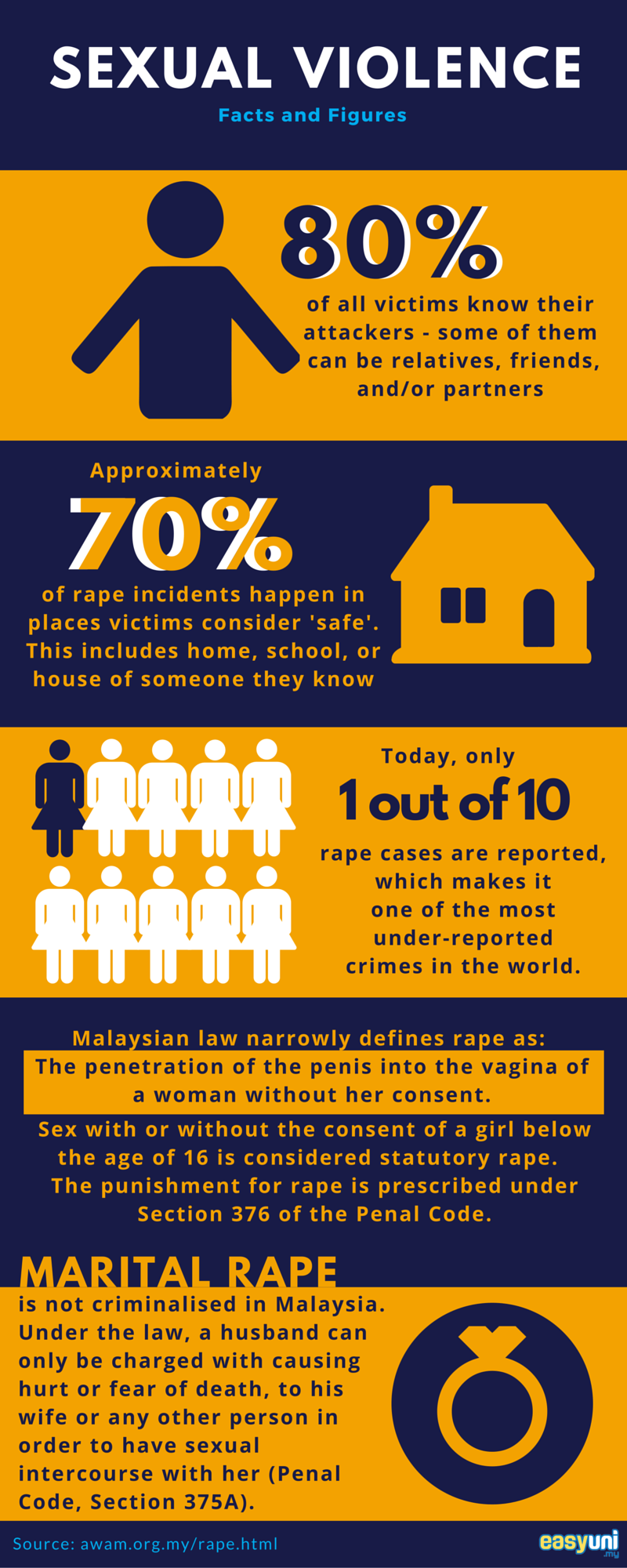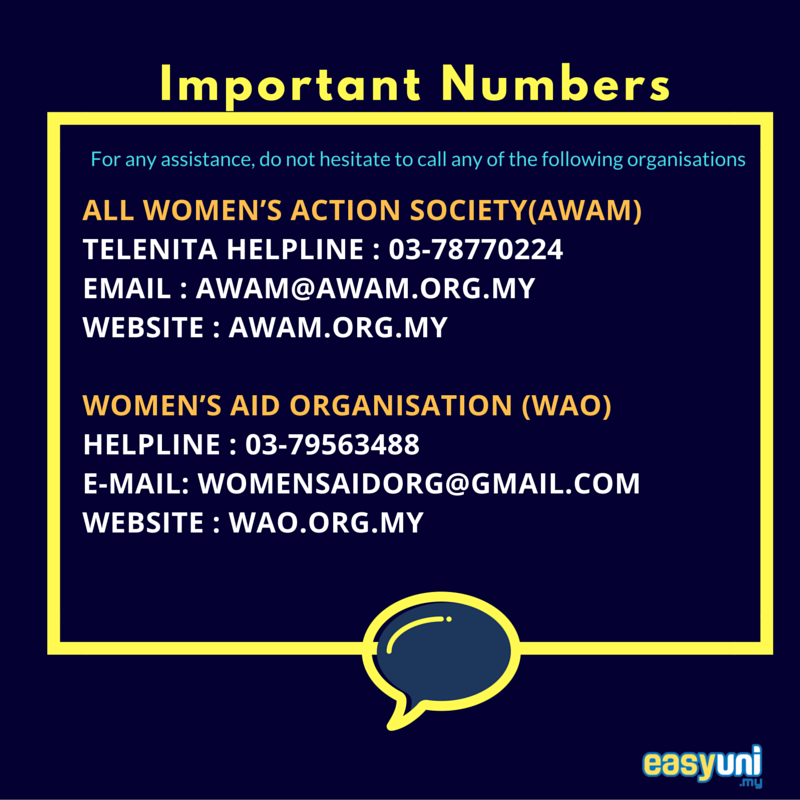The Truth about Date Rape
November 11, 2017
EasyUni Staff
While our common notion of date rape is being drugged and sexually molested, it is actually much more than that. Oftentimes, the victim knows who the perpetrator is – which makes the incident more horrific than it is.

This is the story of Sheena*, 24. Two years ago, she underwent an unforgettable experience from a man she thought she knew and trusted. She shares her experience with EasyUni in the hopes of educating people about what she went through.
“I was at a house party organised by a Uni mate. It's the type of party where the whole world seems to be there. It was there that I met Michael. He wasn’t from our Uni but was a friend of a friend of a friend. He was someone you would call charming.
After that night, we just parted and went our separate ways. Three months later, we started chatting on Facebook. It was during these conversations when he admitted he liked me the first time he saw me. We continued to chat daily and I was mesmerised by all his sweet words. The next thing you know, I fell for him. After another week of courting me online, I agreed to be his girlfriend.
He invited me to go over to his house and hang out. I felt nervous and excited as this would be considered as our very first date after more than three months. It was a decent apartment with very minimal furnishing but in a very secluded location. He then insisted I should visit his room as he would like to show me some of his personal stuff. The moment we stepped into the room, he locked the door behind him. I was alarmed but before I could react, he immediately pushed me to the bed, pinned me,and pulled down my pants.
I felt helpless and at the same time vulnerable as I was unsure whether I should give in - since we are supposed to be a couple. He started kissing me. But a few minutes later, I realised this is not what I want and I told him to stop. But he refused and things got rough and more violent. I tried to get up and push him away but he was much stronger than me. I screamed but he slapped me across the face and threatened me, saying “Don’t fight it, just relax. If you cooperate with me, it will be much easier for you and I won’t hurt you.”
That moment, it came to my senses that I have just become a rape victim! But I didn't report it nor did I dare to tell anyone as I felt embarrassed and it was all my fault for trusting someone.”
Today, a growing number of teenage girls in Malaysia are being lured by sexual predators through mobile chat apps and social dating sites. According to Bukit Aman Police’s crime statistics, there is a 300% increase in internet-related rape crimes between 2010 and 2015. The report shows that in the first five months of 2015, rape by internet acquaintances made up 82% of sex offenders’ modus operandi.

On top of that, according to the Women's Aid Organisation (WAO), for every one rape that is reported, nine go unreported. This is mostly because we live in a society that blames the victim when such occurrences take place. Unlike many other countries, people in Malaysia are afraid to talk about rape because of the stigma that revolves around it.
.webp)
"In the west, their rape hotlines are busy throughout the day," said WAO executive director, Ivy Josiah in an interview with The Star. "But here, despite the crime occurring often, victims do not come forward because we lack awareness on the issue and many often doubt if they will be protected after."

While there have been a lot of stories about these gruesome incidences, let us now debunk a few myths surrounding rape.
Myth: Women who wear revealing clothes get raped.
Fact: Clothing has nothing to do with whether someone is raped or not.
Women in school uniforms or fully clothed from head to toe have been raped. Accusing a woman who has been raped of ‘asking for it’ due to her clothing blames the victim, and not the perpetrator of the crime.
Myth: Men are unable to control their sexual urges and therefore rape.
Fact: Men who rape do so in order to dominate over and control victims, not because they want to have sex.
Men who rape make the conscious choice and decision to do so, just like anyone who commits a crime knowingly does so. This myth of uncontrollable sexual urges excuses the perpetrator of responsibility and blames biology instead.
Myth: 'She didn't scream or fight back, so it wasn't rape'
Fact: Women face the trauma of rape in many ways. Some freeze, and are too afraid to struggle.
The perpetrator may threaten to kill her if she puts up a fight. In other situations, women may be coerced into having sex. The bottom line is, if sex is forced without a woman’s consent, rape has occurred, regardless of how the woman reacts during the crime itself.
Myth: ‘Kissing or hugging can lead to rape’
Fact: Consent to kissing or foreplay is NOT consent to sex!
You have the right to change your mind at any time. You have the right to say no, even if you’ve had sex with that person before.
Myth: If a woman goes to her date’s room on the first date, it implies she is willing to have sex.
Fact: Nothing is ever implied. Date rapes comprise 50 to 75% of all reported rapes.
The best way to prevent a bad situation is to communicate. If things get hot and heavy and you’re not sure what the other person wants, just ask. Some people feel talking may ruin “the mood.” But doing something without consent is rape—and that’s a real mood killer!
Myth: Rape is usually violent and involves a stranger.
Fact: Actually around 73% of all rapes and 90% of rapes on college campuses are committed by someone the victim knows.
Many rapes involve force or the threat of force, but some rapes are committed when the victim is under the influence of drugs or alcohol, or even asleep! Sex against someone’s will is rape under any circumstances.
Myth: Anyone who is drunk or high and being a flirt gets what they deserve.
Fact: Being drunk or high is risky behavior that could have many dangerous consequences. Rape is just one of them.
People who are “loaded” are also less likely to use protection and more likely to have sex or be coerced into having sex with someone they don’t know. The bottom line: regardless of a person’s behavior, no one deserves to be raped. Furthermore, people who commit crimes while “under the influence” are still responsible for their actions.
Myth: Women fantasize about being raped.
Fact: Some women have sexual fantasies about having aggressive sex with a stranger or being “forced” into performing certain sexual acts, but they can stop the fantasy when it becomes too frightening.
During a real rape, the victim is powerless to stop anything.
(Myths and Facts source: awam.org.my/rape.html)
"Rape victims who seek help, on the other hand, go through a 'second rape' where they are often asked questions like 'what were you doing with him?', 'why were you there at that time?', 'why did you wear something like that?', and hence most victims prefer to just suffer in silence,” Ivy added. What is also saddening is victims also undergo this experience with people they have sought help from.
If you happen to know someone or has been approached by a victim, remember to do these things:
- Don’t blame him or her; be supportive
- Accompany him/her to the police or hospital
- Call a women’s NGO for more information
With about 80% of the victims who approached the organisation were raped by someone they knew and were often ashamed that they had not foreseen such an attack, such is the case of Sheena.
Locally, there are organisations willing to extend assistance to the victims – most of them are a phone call away. Here are a few numbers to remember:

Today, Sheena lives with the dark story of her past – but this has not stopped her living her life on her own terms. She admits the experience is something she will have a hard time forgetting, but she hopes that by telling her experience – both victims and their loved ones – will know how to better deal with these kinds of situations. “The important thing is to continue to fight – for your life, for your family,” she said. “In the end, we choose how to deal with the pains and I choose to empower myself by telling my story.”
***
*Name have been changed
Special thanks to All Women's Action Society (AWAM) for the facts, figures, and additional information.
Kickstart your education in Malaysia
We'll help you find and apply for your dream university
You might be interested in...
- The Role of Education in Promoting Health Equity: Lessons from World Health Day 2024
- Navigating Credit Transfers: A Guide for Students Switching Institutions
- Explore the Benefits of Studying in Malaysia After SPM Examination
- SPM Leavers’ Guide to Malaysian Scholarships: Types, General Requirements, and Practical Tips
- Crafting a Greener Tomorrow: Empowering Change through Zero Waste and Upcycling Practices
- Malaysian Higher Education's Global Outreach: Collaborations with International Institutions
- Initiatives by Universities in Malaysia to Prepare Students for Globalization
- PHAM 2024 Takes Center Stage at Sunway University, First in Asia
- Malaysia as a Destination for Global Educational Excellence
- A Foodie’s Guide to Malaysian Campus Life






